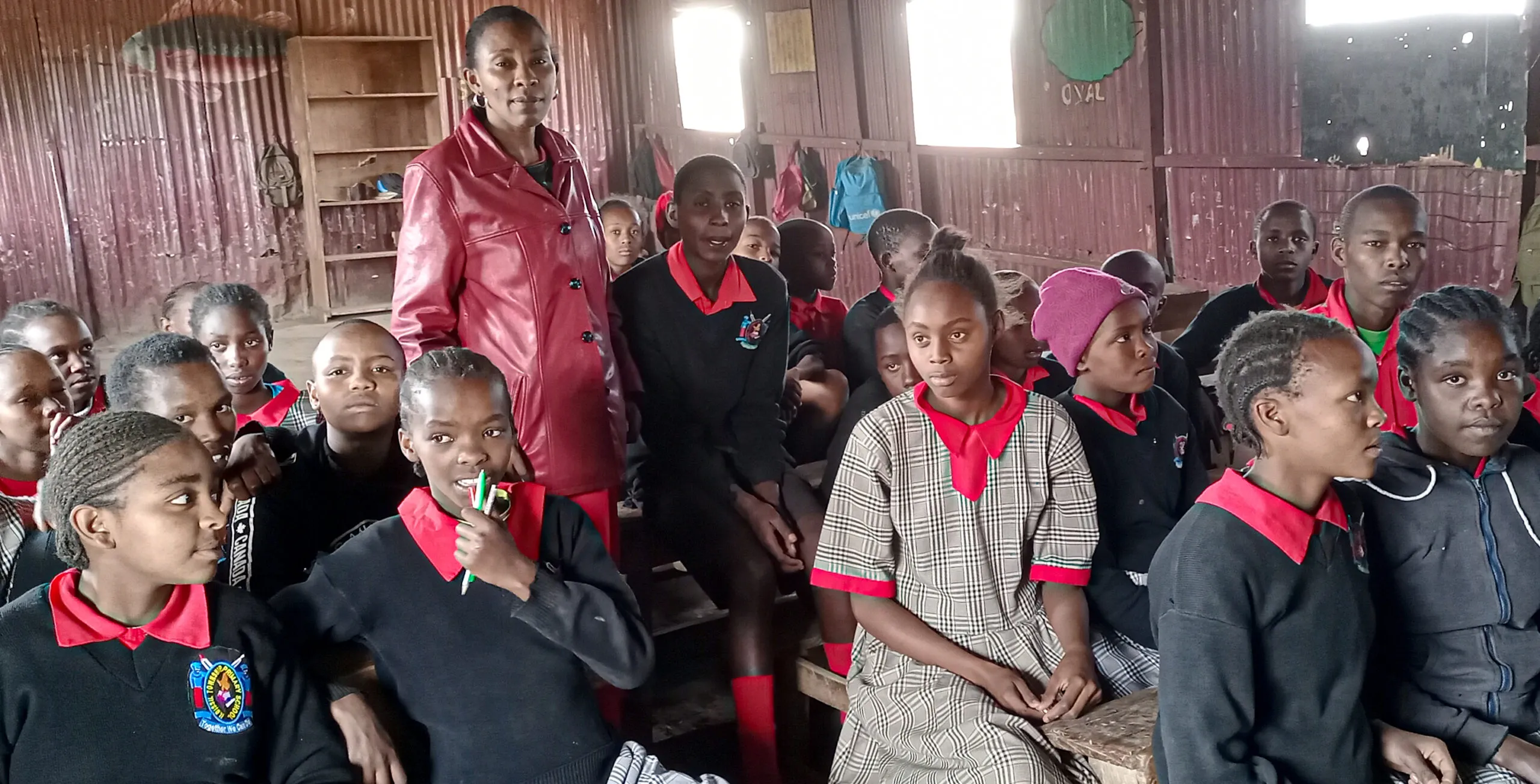The severe and worsening drought in Kenya has impacted school retention as pupils are forced to drop out of school to support their parents in the search for food, pasture, and water. The findings are part of a recent survey carried out by CARE Kenya in Kajiado Central Sub-County. Mwende Kusewa, CARE International Interim Country Director said, “We found that 99% of children who had dropped out of school between September and October 2022, did so due to the drought situation.”
At the same time, 46% of the 50 schools reviewed reported persistent absenteeism with 3 schools reporting attendance of less than 50% of learners. Teachers reported that 84% of the students who attended class sessions had a short attention span and concentration and most students would fall asleep due to hunger.
“Learning is not taking place in schools; the children are hungry and sleeping in class or distracted and they come to school hoping to get food in the school,” said Job Kaikai, Kajiado Central Sub-County Education Director.
Currently, 4.35 million Kenyans in 23 of the 47 Counties in Kenya are facing drought and it continues to worsen in 20 of the 23 Arid and Semi-Arid counties. Kajiado is one of the counties affected because of, among other factors, Climate Change.
The community in Kajiado is comprised of pastoralists who rely on cattle for their sustenance. With the degradation of pastureland, some children have dropped out of school to support their parents’ search for animal feed. This includes climbing the acacia shrubs to collect seeds to feed the cattle and goats. Others have had to move with their cattle in search of pasture. Those who remain home have little to no food to survive on. With low livestock prices, selling the surviving ones is not an option.
Lack of food has had a negative impact on the lives of the community, and this has trickled down to the learners, especially in primary schools. Learners attend class hoping to get food in school as they do not have any at home.
The survey was initiated under the CARE Kenya Education Project, with support from #StartSmall, which was started to address school dropouts because of COVID-19. With this drought though, the dropout factors have been compounded. “Many parents indicated that they are taking loans and prioritizing purchasing food and water for their families and livestock over paying school fees. The severe drought is likely to reverse the gains made in limiting the number of adolescents dropping out from school,” Pamela Agum Education Project Manager, CARE International.
Another key factor affecting schools in Kajiado is the lack of water. Almost half the schools have opted to purchase water as they have no access to adequate water, which is affecting the schools’ operations. In some of the learning institutions, students are asked to bring water to school. This means that learners now have the extra chore of traveling even further to get water before going to school thus adding an extra burden on them.
“The drought is having adverse impacts on vulnerable learners, especially girls. Due to insufficient water, girls are missing classes, especially during menses. Lack of money means that families are prioritizing food over education and thus children are dropping out of school. A concerted and multiprong approach is needed to avert the impending crisis. If left unchecked will see an increase in illiteracy levels in Kajiado,” Mwende Kusewa said.
For more information please contact:
Anisa Husain
CARE Press Officer
Anisa.Husain@care.org

